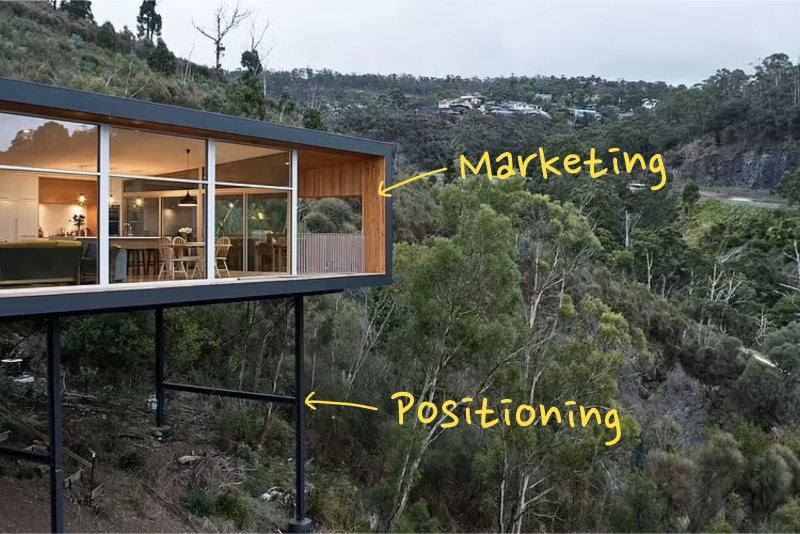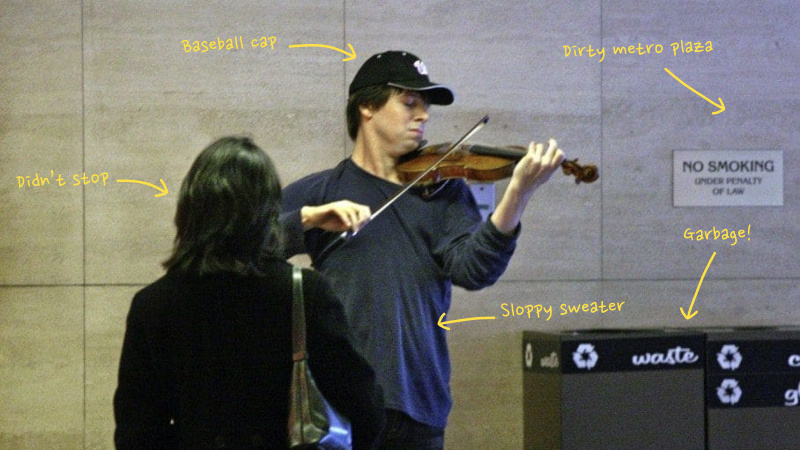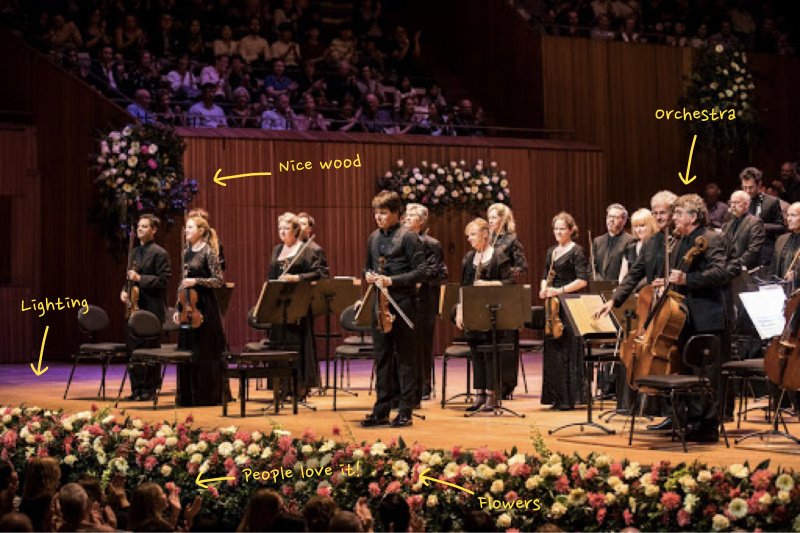In this post, we will dive into the concept of positioning and why it's crucial for the success of your SaaS startup.
This post is based on the insights from the book "Obviously Awesome" by April Dunford. So if you want to dive in deep, I highly recommend reading the book. However, April writes for a broader audience of tech startups, and here I tailor the content more specifically to SaaS startups.
Why it is important
Startups often focus on the latest traffic source and neglect their website's ability to convert that traffic into happy customers that won't churn.
They get distracted by growth hacking, content marketing, AI tools, and other shiny new objects.
But in reality, they are building a taller building on a weak foundation.
Because every single marketing tactic that we use in business today uses positioning as a foundation.

In other words—none of the marketing tactics work without solid positioning as a starting point. Weak positioning diminishes the results of everything we do in marketing. It's swimming against the current, making it more challenging to meet your growth target.
Solid positioning supercharges all of our marketing efforts. It's an input for writing compelling copy and designing a website that converts visitors into brand evangelists.
What is positioning
First, let's start with what positioning is not. It's not:
A tag line
Point of view
Vision
Brand
Messaging
"Marketing"
Go-to-market strategy
Positioning defines how our product is the best in the world at providing something that a well-defined set of customers cares a lot about.
Positioning answers fundamental questions:
What is this?
Why should I care
Another way to think about positioning is as a context.
Context can completely transform the way we think about a product
When website visitors encounter a product they have never seen, they will look for contextual clues to help them figure out what it is, who it's for, and why they should care.
When they combine messaging, page structure, pricing, features, and design feel, visitors create context and set the scene for the product.
Let me give you an example of context outside SaaS.
In 2007 Washington Post did a context experiment. So the idea was they would take the professional musician. And they would place him outside a busy subway station in Washington, DC, during the morning commute.
And they had 2 questions they wanted to answer:
Would anyone notice that he is no ordinary street musician?
And would he make more money than an average street performer?
Here is what happened:
45-minute performance
1097 people passed by
7 paused to listen
27 gave him money
$32.17, his total earnings
When I first heard this story, I thought, "maybe people did notice the music is really good, but they didn't have time to stop and give money because they are on the way to work and they are late".
It turns out no, that's not true.
There was a kiosk twenty feet from where he played. And people were lined up to buy lottery tickets. Washington Post went and interviewed those people.
They asked, "did you notice anything different about the music"?
Everyone said, "no, didn't notice". One man said, "just a guy trying to make a buck."
There was a woman in the corner of the plaza shining shoes, and she shined a whole bunch of people's shoes, and they went and asked her:
"You were here the whole time. Did you notice anything different about the music this morning"?
And she replied, "I did. It was so noisy I wanted to call the cops".
So what happened?
It wasn't that people were too busy. His context sabotaged him.

Everything around him changes when he's playing outside a subway station.
He's dressed like a street performer and standing beside a garbage can, playing for tips. His product—the music—hasn't changed, but in this context, few people recognize its value.
But if we took that lady and gave her a ticket to the concert…
The musician was violinist Joshua Bell. He was considered the best classical musician in America at the time. He regularly sold-out concert halls where tickets cost $300 or more.

Bell is perceived as producing something precious in the context of a concert hall. He's dressed to perform. An orchestra surrounds him on a beautiful stage. The program tells people what awards he has won.
Even a world-class product, poorly positioned, can fail.
We rely on context to make sense of a world filled with millions of products.
Context allows us to make thousands of little decisions about what we should pay attention to and what we can ignore. Without context, we would be overwhelmed or paralyzed by choice.
Wrapping up
You may have built a great product, but if it's poorly positioned, your visitors will bounce off your page, failing to see its value.